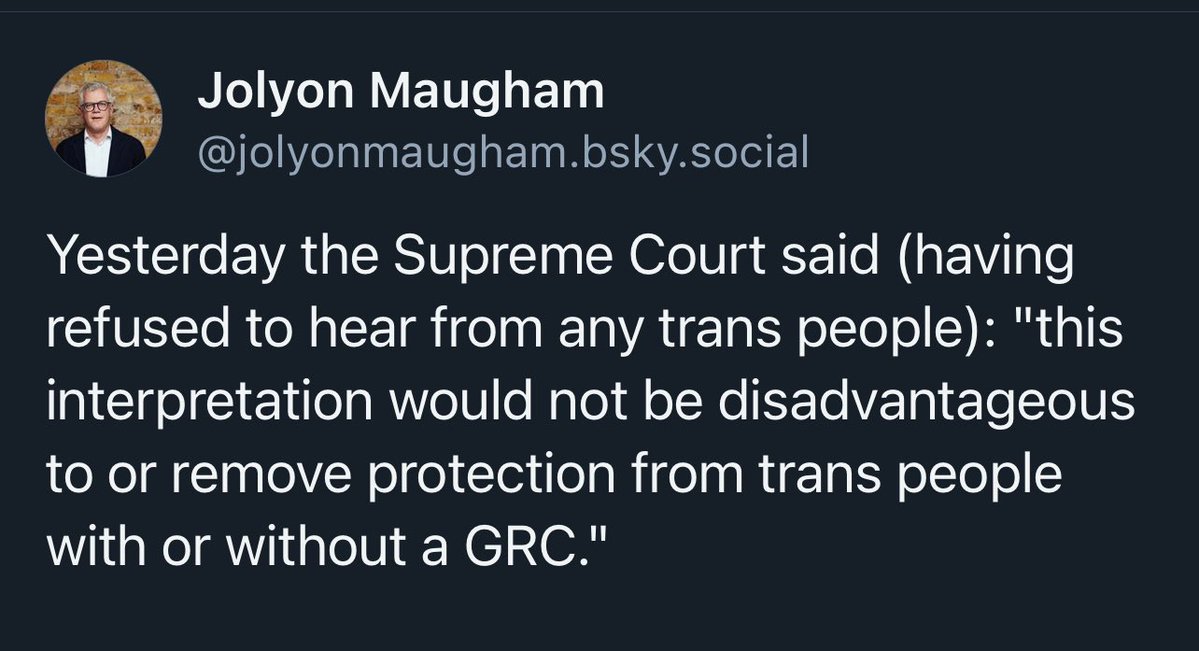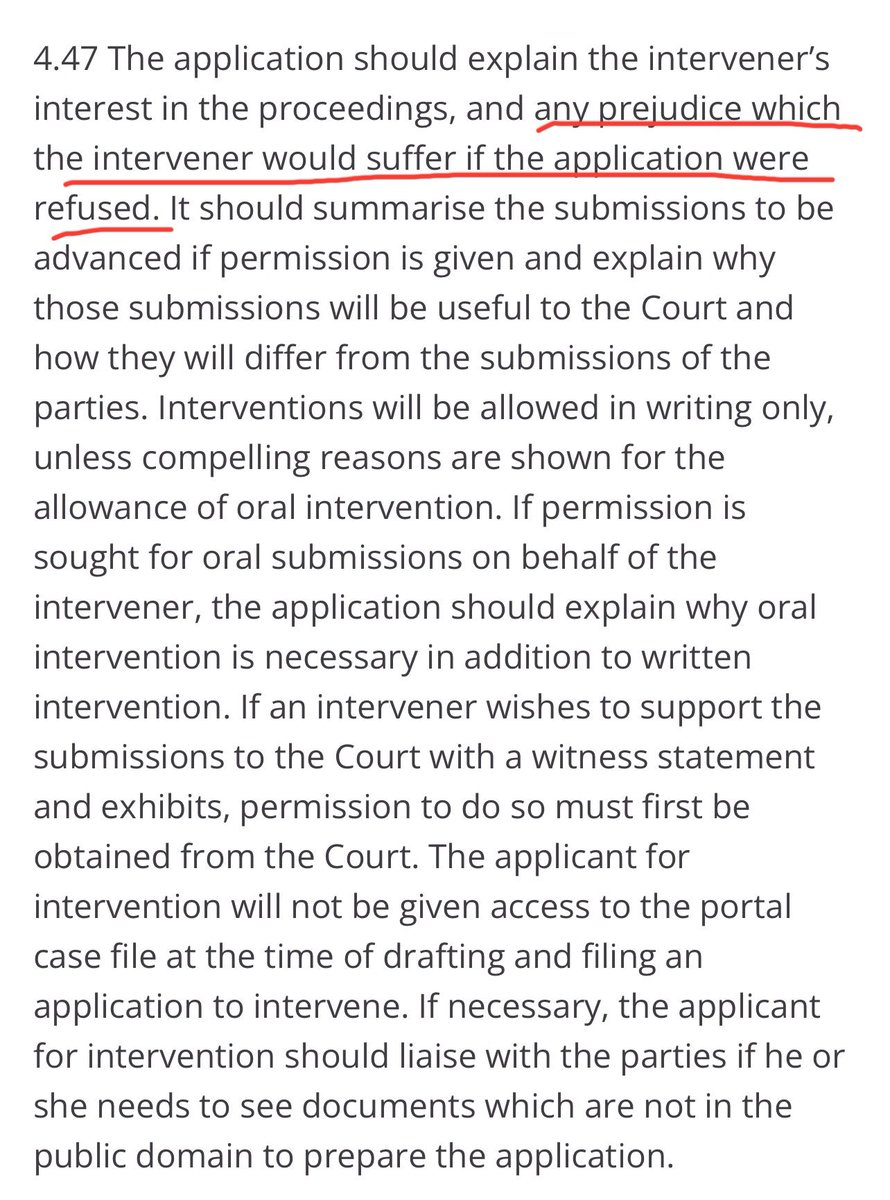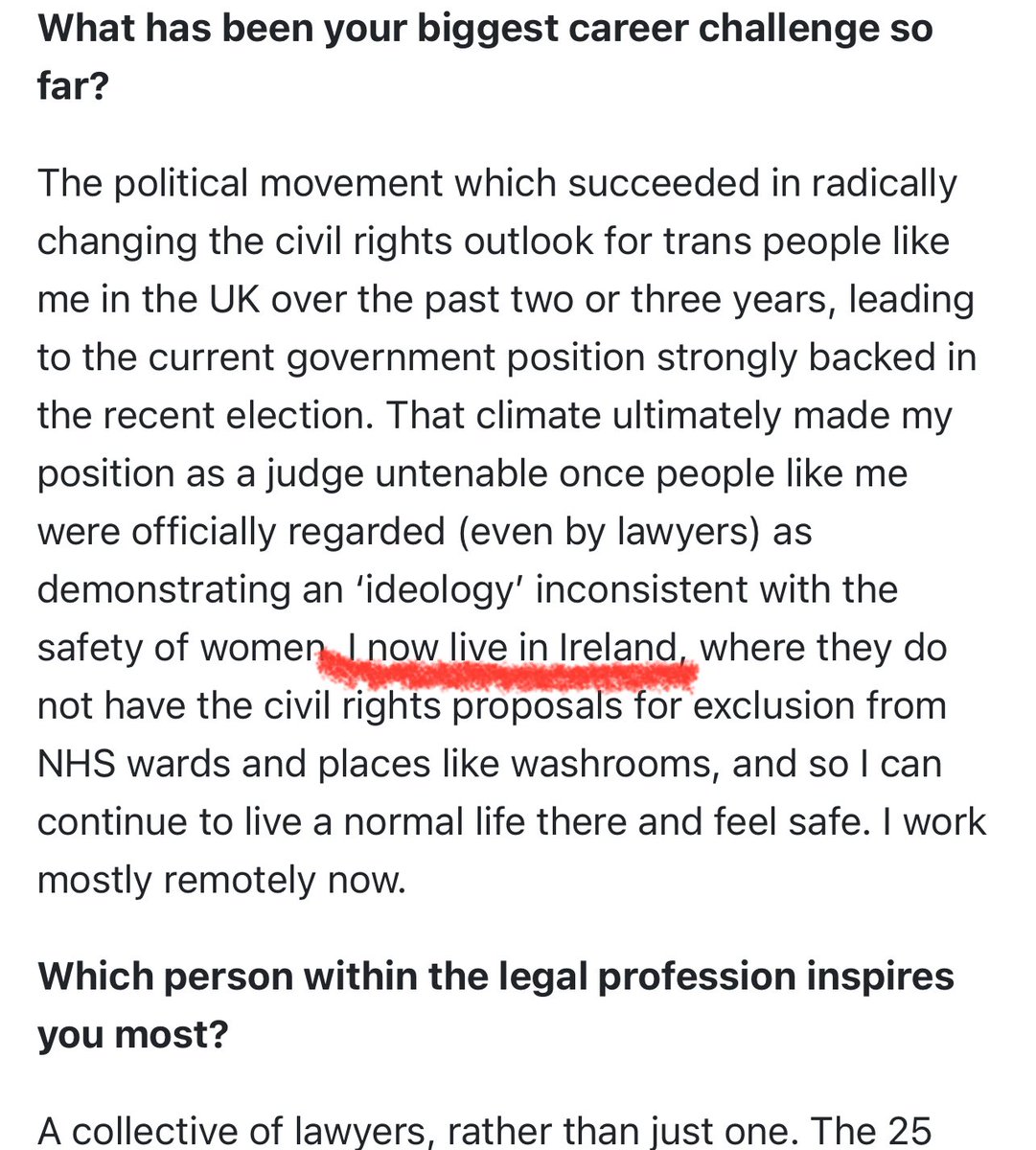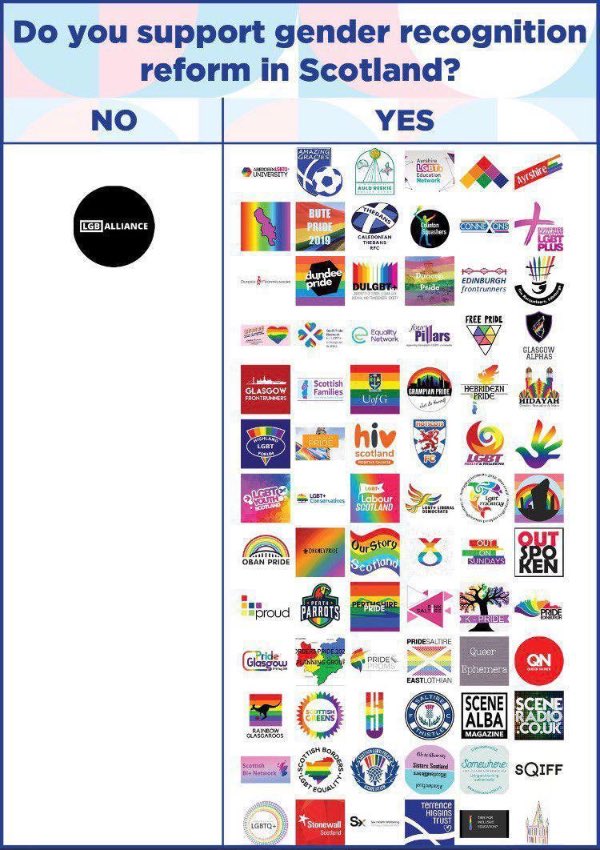Another of the false assertions made of the @ForWomenScot judgment is that the Supreme Court “refused to hear from trans people.”
It did no such thing.
🧵

It did no such thing.
🧵


The Court declined to hear from two trans individuals (in an application for which Maugham’s Good Law Project had crowdfunded £31,874 less the 10% from all GLP crowdfunding which is retained by GLP for its own expenses).
(h/t @wonkypolicywonk)
(h/t @wonkypolicywonk)

That application was very unlikely to succeed because the Supreme Court doesn’t tend to hear from individuals. I stand to be corrected, but I can’t think of any Supreme Court case in which an individual has been granted permission to intervene.
Paragraph 4.47 of the Supreme Court practice direction sets out what a prospective intervener needs to give the Court in order for its application to intervene to be considered. You have to show prejudice. 

The Good Law Project’s two trans interveners can’t reasonably have asserted the necessary prejudice.
One gave an interview in October 2024 saying this. If you’re outside of the jurisdiction of the Court and the Equality Act 2010 there can’t be much prejudice to you in the Court deciding a case about the Act without hearing from you. 

The other seemed perfectly happy with the judgment when it was promulgated, and published a long thread to that effect. He can’t reasonably therefore be said to have been prejudiced by his lack of audience. threadreaderapp.com/thread/1912742…
Any potential intervener needed to establish that their utility to the Court was more than just their own personal interest. They needed to show that they represented a body of people affected by the subject of the case.
For our intervention, three separate organisations, including a registered charity (LGB Alliance), applied jointly to make a single submission. Pro trans organisations could have done similarly, but didn’t.
There is no shortage of pro trans organisations and charities keen to shape law and policy. 72 orgs wrote to the Scottish Government about it’s Gender Recognition Reform Bill. Any of them could have applied to intervene. scotsman.com/news/politics/…
In response to LGB Alliance’s newspaper adverts against the GRR Bill, pro trans organisations published this, showing their weight of numbers. LGB Alliance applied to intervene in the Supreme Court, and none of them did. 

It would have made no difference to the outcome if they had - whereas LGB Alliance’s intervention was crucial - but that’s neither here nor there: they didn’t show up. Their decision not to show up is neither the fault of the Supreme Court, nor a deficiency in its judgment.
But Amnesty did show up, and put the pro trans case very effectively. They were published ahead of the hearing. There was no criticism from GLP or anyone else that there were important arguments missing.
amnesty.org.uk/files/2024-11/…
amnesty.org.uk/files/2024-11/…
The fact that those submissions - as professional and thorough as they were - did not materially trouble the judgment is a reflection of the merit of the arguments available, not the intervener or lawyers making them.
The Amnesty submissions would have been no more effective if a trans person had been involved in signing off what the three barristers (including a silk) had written: it still would have failed, because the arguments are the arguments, regardless of who is making them.
None of those asserting a “lack of trans voices” have ever identified an argument that was missing from Amnesty’s case (although the word “lesbian” was missing. Thanks to LGB Alliance and the other lesbian interveners, the word “lesbian” features in the judgment 27 times).
END
• • •
Missing some Tweet in this thread? You can try to
force a refresh





